At Alpine, we approach education in a holistic way and focus on the unique developmental needs of each individual child. As one of the top Montessori schools in Gurgaon, we pride ourselves on providing an environment that fosters growth and learning. There are five key areas of learning in the Montessori environment. Each area helps children learn and grow by building strong foundations and stimulating their development through logical and creative experiences.
The Montessori programme provides children with five main areas of learning: real life, sensory, mathematics, language, and cultural studies. Each learning area consists of a series of learning materials of increasing complexity.
Children progress through the Montessori curriculum at their own pace, based on their developmental stage and interests. Our well-trained Montessori educators lead key lessons introducing children to the titles and learning outcomes of each Montessori material.
After key lessons, children practise and explore Montessori materials on their own and connect to key learning outcomes. At this time, Montessori educators step back, observe how children learn, and record their progress.
Educators will intervene only when necessary to encourage children's independence, as there is a direct link between a child's self-esteem and ability to learn and retain new skills and information.
A new class is offered when the child is ready to move on to the next level. Through repetition and practice, children master the sequence of Montessori materials and develop a fundamental understanding of each area of the curriculum.
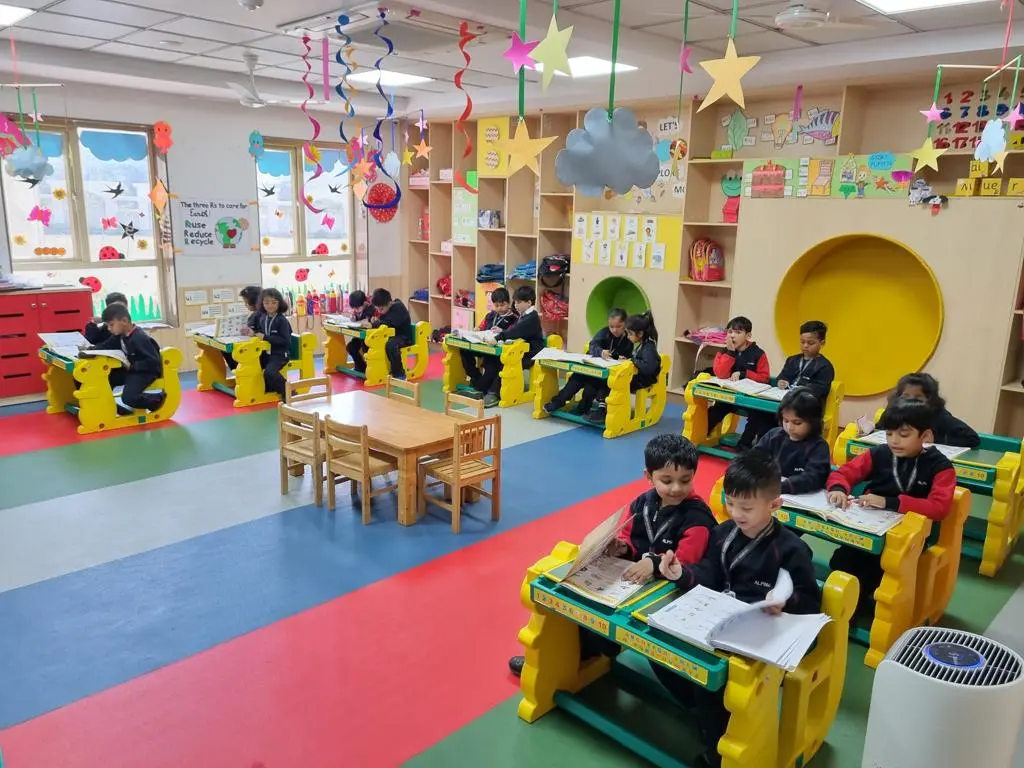
 You must be the change you wish to see in the world - Mahatma Gandhi
You must be the change you wish to see in the world - Mahatma Gandhi





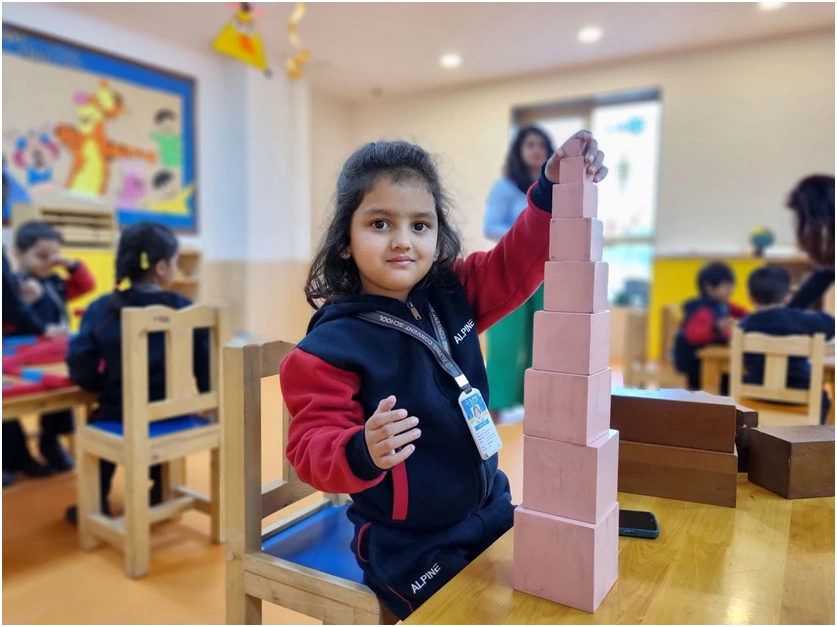

The Montessori Practical Life Curriculum incorporates exercises and activities that children observe in daily life. These activities develop children's independence, concentration, and fine motor skills. Within the Montessori Curriculum, activities of Practical Life revolve around five key areas, including: Preliminary Exercises, Care of Self, Care for the Environment, Grace and Courtesy, and Control of Movement.
Recognized among the best Montessori schools in Gurgaon, our curriculum is designed to nurture curiosity and a lifelong love for learning. Parents consistently rate us among the best Montessori schools in Gurgaon, thanks to our innovative methodology and individualized care.
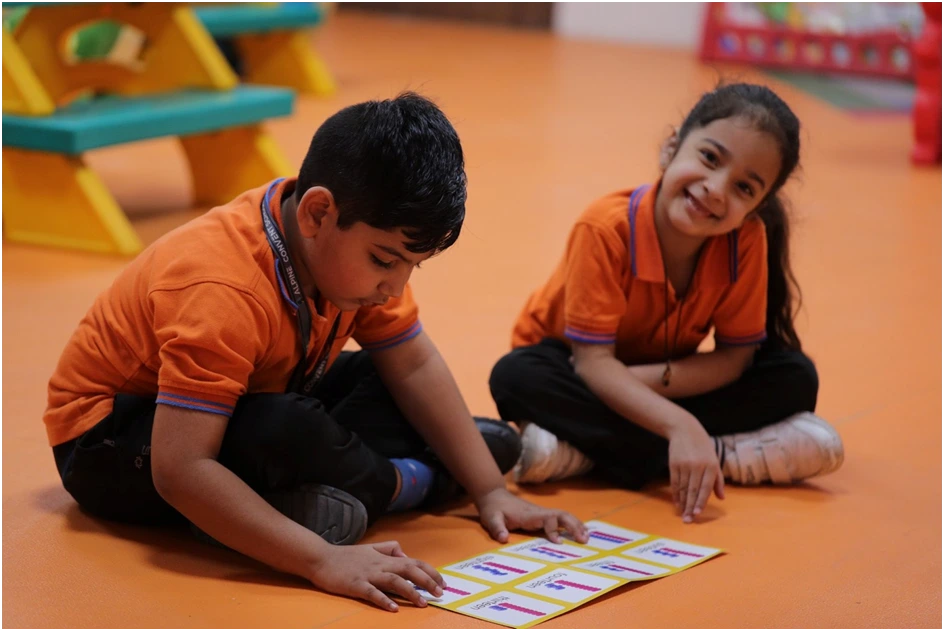


Sensorial activities teach children to refine their senses of sight, touch, sound, smell and taste so that they are able to organise sensory impressions and their understanding of the world. Through sensorial materials, children learn about similarity and difference, dimensions, colours and shapes, and distinguish between smells, taste and sound.
As a leading Montessori school in Gurugram, Alpine Convent School ensures that each child receives personalized attention to thrive academically and socially. Our comprehensive approach makes us a top choice for parents looking for a reputed Montessori school in Gurugram. Sensorial work also prepares children for mathematics, language and geometry by teaching children how to classify and sort.
Some of the most loved Sensorial Activities are
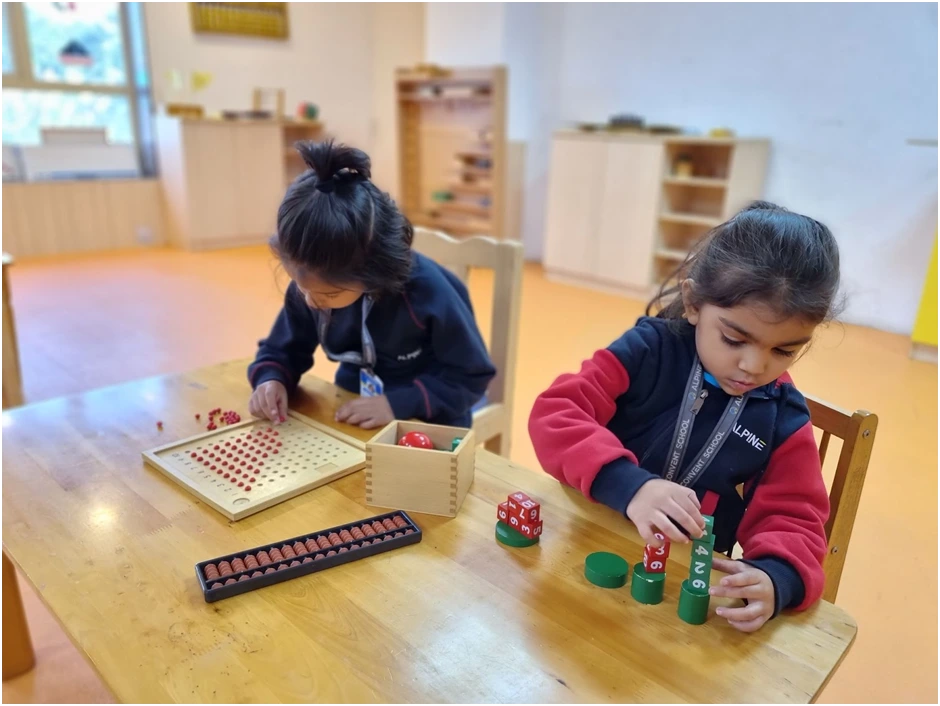

The Mathematics Curriculum teaches children to understand abstract mathematical concepts and relationships through hands-on learning experiences. Children learn to count, identify and match numerals to their quantity, relate decimal quantities and symbols, and become aware of the functions of addition, subtraction, multiplication and division by using the Montessori materials.
Parents seeking the best Montessori school Gurgaon can trust Alpine Convent School's commitment to excellence and holistic development. As a top-rated and best Montessori school Gurgaon, we align our curriculum with global best practices while staying rooted in core values.
Some of the most loved Mathematics Activities and Manipulatives are



The Montessori Language Curriculum provides children with the knowledge and skills to build their vocabulary and understanding of language. The skills required for reading, writing and oral language are developed through hands-on experience using the Montessori language materials. Children learn letter sounds (phonics), letter identification and formation, how to combine sounds to make words, how to build simple sentences, and how to properly hold a pencil. Oral language skills are developed through daily social interactions, group time experiences, and lessons in grace and courtesy. Our reputation as one of the top Montessori schools in Gurgaon is built on years of dedicated service and outstanding educational outcomes.
Example materials and activities include:
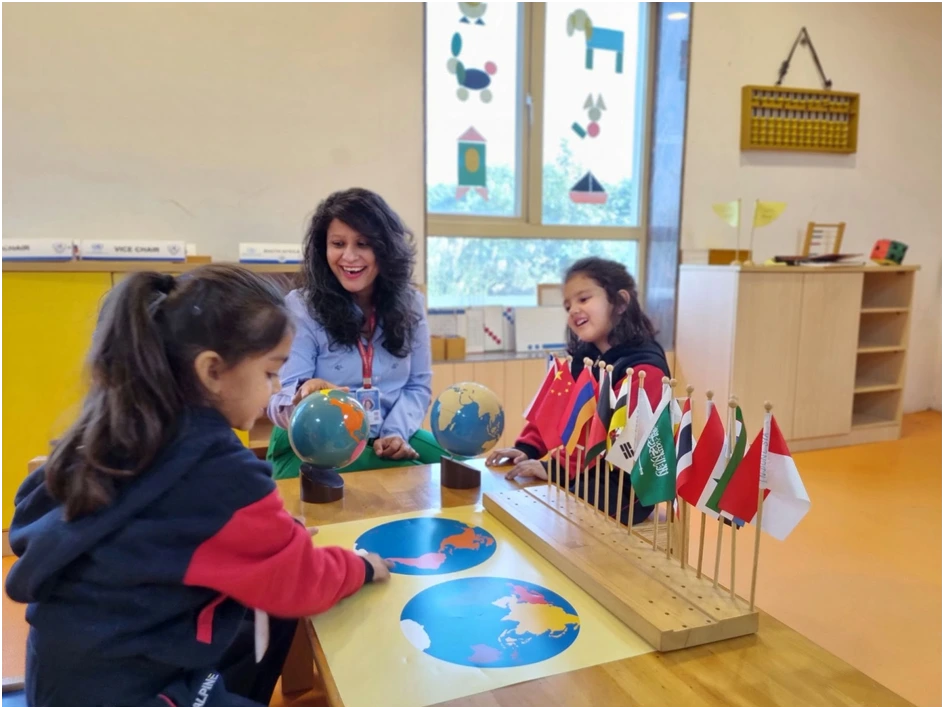


The General Awareness Curriculum incorporates a wide range of subjects, including: Geography, Botany, Zoology, Science, History, Music and Art. Through explorations of culture, children develop an understanding of their community, their world, and their social responsibilities. Children learn to respond to diversity with respect, appreciate music and art, and develop awareness of sustainability.
By choosing Alpine Convent School, you're selecting one of the premier Montessori schools in Gurgaon that prioritizes your child's growth and success.
Example materials and activities include:
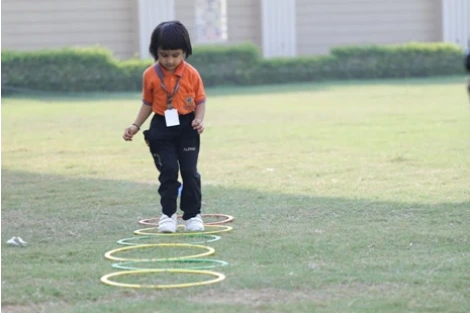
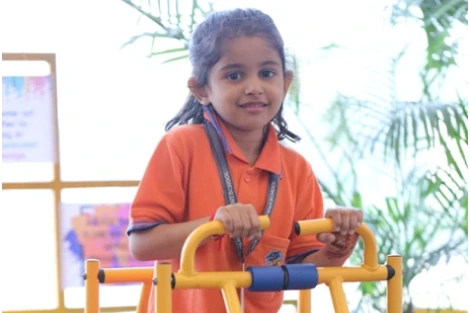
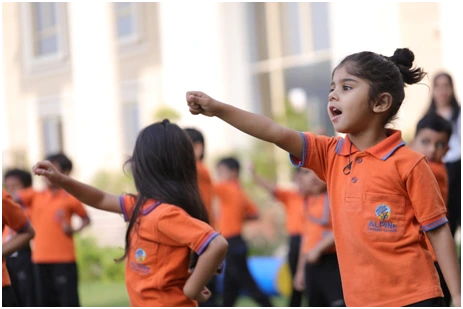
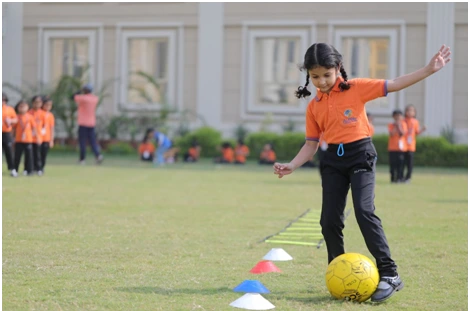
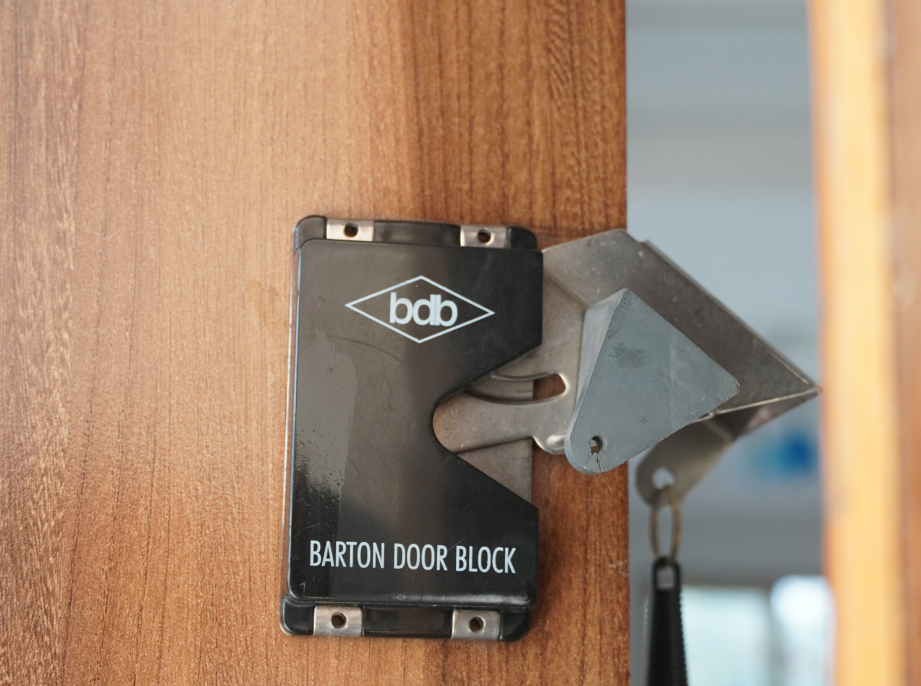

In our classrooms, Barton door blockers are used to enhance security and prevent unauthorized entry. These devices ensure that doors can be securely locked during any emergency situation, creating a safe and protected space for our Montessori children.
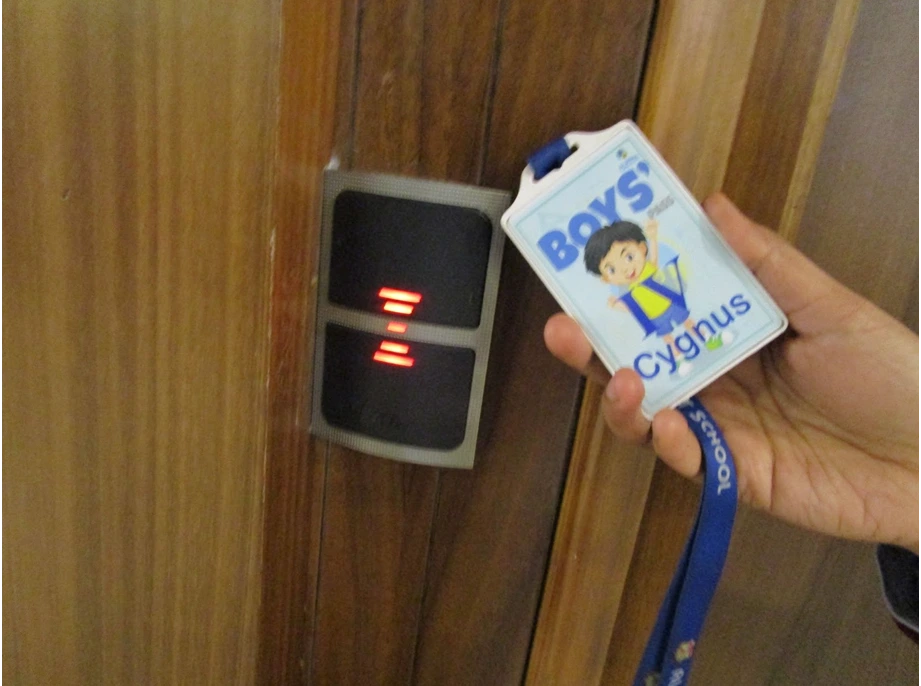


To ensure the safety of our youngest learners, access control gates are installed at key entry points. Only authorized individuals are allowed entry, providing a secure environment for the children to explore and learn without concerns about unauthorized access.
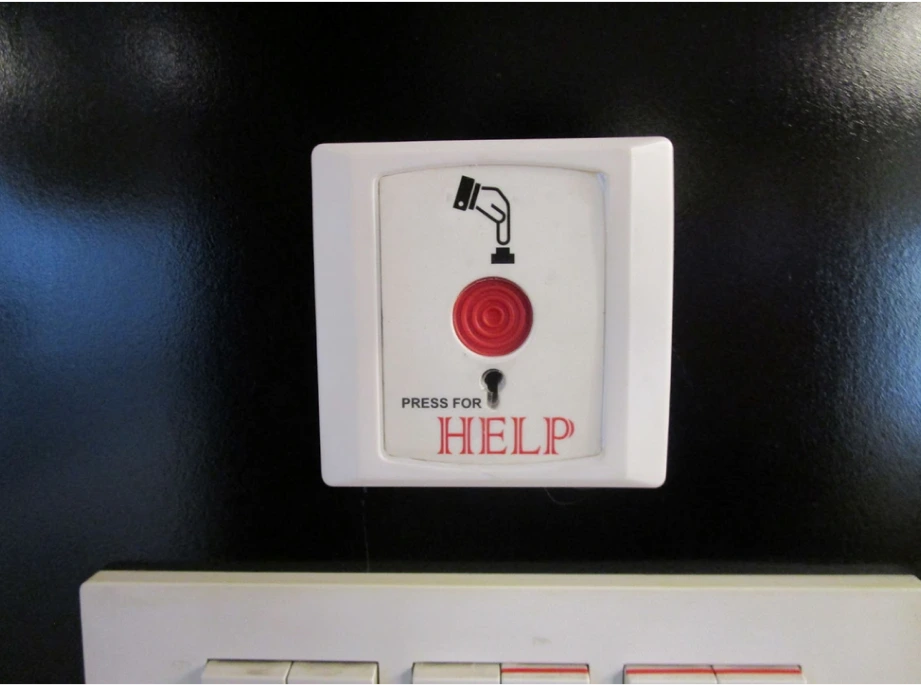

Strategically placed throughout the Montessori section, our help buttons are easily accessible, allowing children to request assistance whenever necessary. This simple yet effective feature ensures that they always feel supported and safe in their learning space.